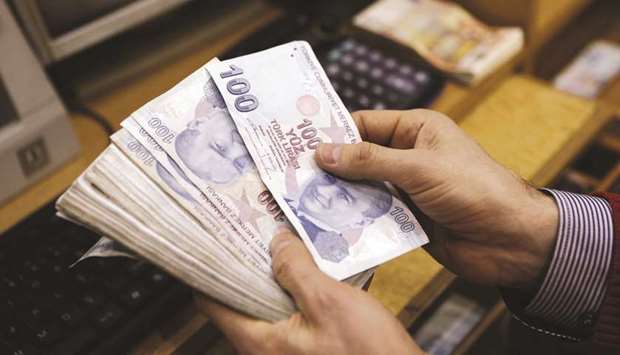Turkey’s central bank both stunned and cheered investors yesterday by raising its key interest rate for the first time in two years.
Economists said the one-week repo rate increase from 8.25% to 10.25 % also helped the bank reclaim some policy scope.
The bank had tried to use discrete currency support measures such as changes to overnight borrowing costs to avoid formally hiking the main rate.
But that approach did not prevent the lira from losing 22% of its value against the dollar this year and becoming one of the worst emerging market performers in the world.
“Massive surprise, and positive,” said BlueBay Asset Management analyst Timothy Ash. Turkey last raised its main rate in September 2018 amid a currency crisis sparked by a sharp deterioration in relations with the US.
Economists attribute the current downturn to the coronavirus pandemic and a drop in Turkey’s foreign currency reserves.
Moody’s ratings agency estimated that the central bank’s attempts to prop up the lira have seen Turkey’s stockpile of dollars and euros shrink to a 20-year low.
It downgraded Ankara’s sovereign credit rating further into junk status at B2.
“The government has almost depleted the buffers that would allow it (to) stave off a potential balance-of-payments crisis,” Moody’s warned.
A central bank statement said yesterday that it had “decided to increase the policy rate by 200 basis points to restore the disinflation process and support price stability”. Inflation edged up to 11.77% in August and has remained above 10% for the past few years. This means that Turkish bank deposits and bonds lose value over time since inflation exceeds the base interest rate.
“The central bank pinned its decision on concerns over inflation,” Capital Economics analyst Jason Tuvey wrote in a research note. “But any shift in monetary policy always hinged on swings in the lira.”
Tuvey noted that the rate increase could help push the average cost of funding in the coming months to 12% — just above the rate of inflation and possibly enough to save the lira from further declines.
Economists said the central bank will have to do even more in the future to support the lira.

A money changer counts Turkish lira bills at a currency exchange office in central Istanbul (file).
